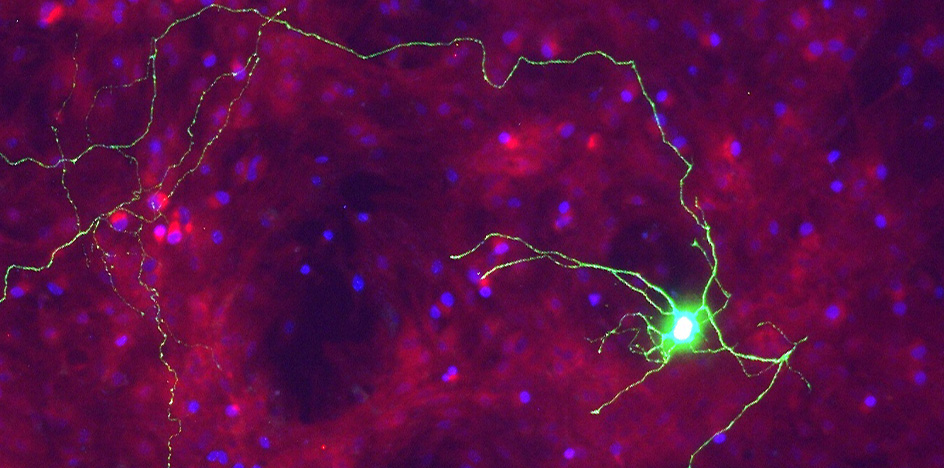Our research focus is to leverage genomic and stem cell technologies to study and solve the causes of neural injury, addiction and disease. As part of the W.M. Keck Center for Collaborative Neuroscience and the Rutgers Addiction Research Center, we share several collaborative projects with our colleagues.
- Risk gene variants in addiction disorders Beginning with a collaboration with Dr. Jay Tischfield, we built collections of human induced pluripotent stem cells (iPSC) with selected subjects from the large-scale screening for genetic variants associated with nicotine and alcohol abuse. Our current focus is on alcoholism risk variants from the COGA project. These projects are all in collaboration with Dr. Zhiping Pang of the Rutgers Child Health Institute. Our goal is to identify mechanisms in human neurons that predict optimal therapies based on specific genetic variants.
- Schizophrenia Working with Drs. Carlos Pato, Michele Pato, Jennifer Mulle, and Zhiping Pang, we will prepare 120 iPSC lines from Schizophrenia patients with specific genetic variations to test the hypothesis that affected pathways converge in neurons.
- Genetic and toxin risk in Alzheimer’s Together with Dr. Jason Richardson, we have prepared iPSC from Alzheimer’s disease (AD) subjects carrying variants of the APOE gene, which is the greatest genetic risk factor for AD. Dr. Richardson has found that exposure to DDT or its metabolite DDE, particularly in subjects carrying the APOE ε4/ε4 variant, compounds the risk for AD. This is a unique example of a gene x environment interaction for a major neurodegenerative disorder. Our role in the project is to using human neurons to model DDT action on APOE gene variants to stimulate AD-related mechanisms.
- Modeling HIV-associated neurocognitive disorder (HAND) in iPSC-derived cerebral organoids Working with Drs. Pang, Jiang, and Rabson, we have adapted cerebral organoid models to include iPSC-derived human microglia, so that these cultures may be infected with HIV virus. This was supported as a pilot project by the Rutgers Brain Health Institute and is now funded by an NIH R21 award.
- Ataxia-telangiectasia Based on previous collaborative projects with the laboratory of Dr. Karl Herrup and Dr. Kim Chow, we Our goal is to model the broad genetic diversity present in A-T patients but lacking in traditional models such as mouse knockouts.
We collaborated with RUCDR Infinite Biologics® (now Sampled) to form the NIMH Stem Cell Center, a service to bank cells from subjects with mental disorders for use in creating induced pluripotent stem cells (iPSC). The Center creates iPSC as directed by the scientific advisory board. Sampled also hosts the NINDS Human Cell and Data Repository, which includes stem cells from several neurological disorders. We participate in many collaborative studies to use specific genetic background sample to prepare iPSC in the study of addiction, schizophrenia, Alzheimer’s disease, autism and more. Find our iPSC protocol book here.

